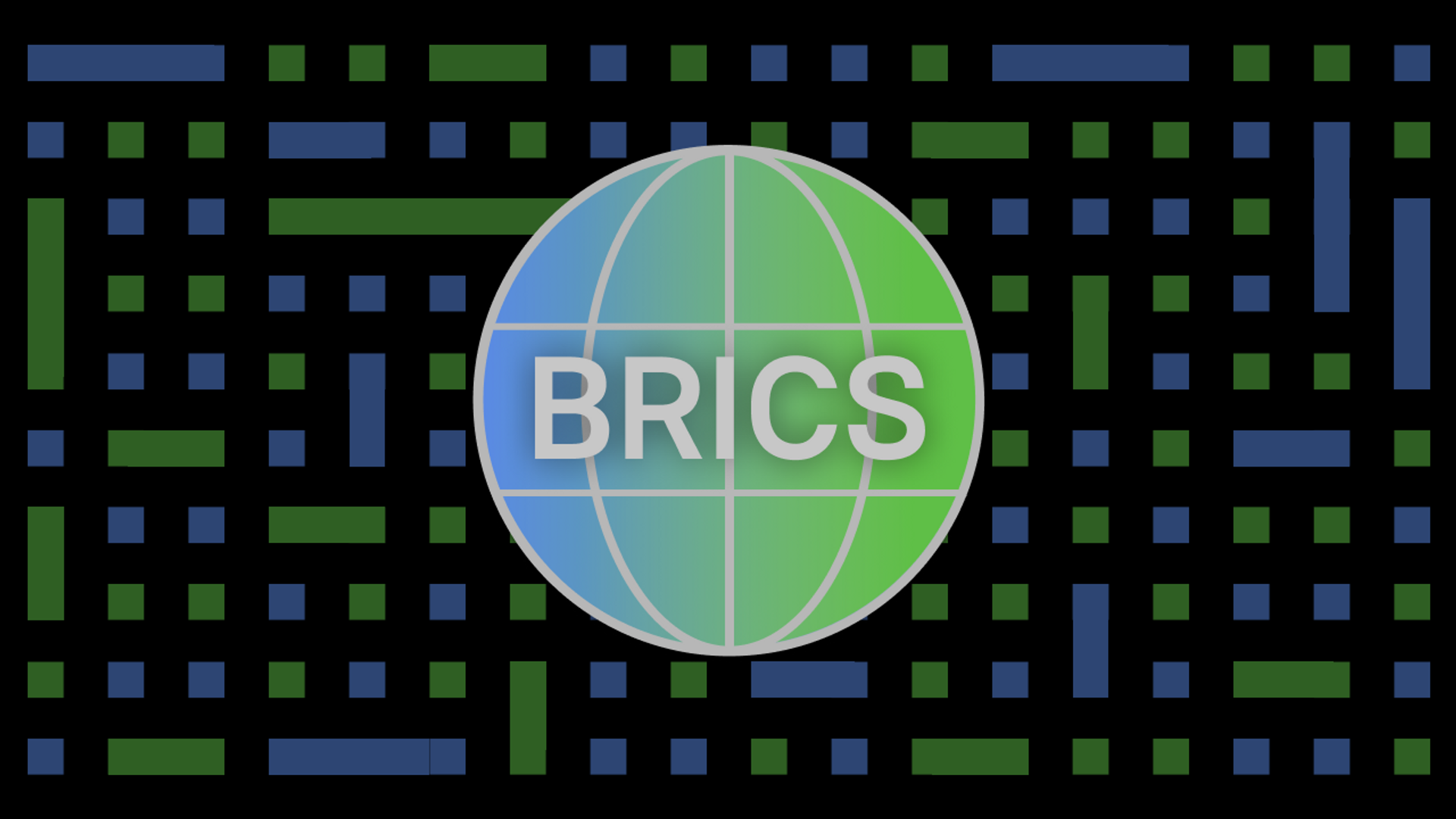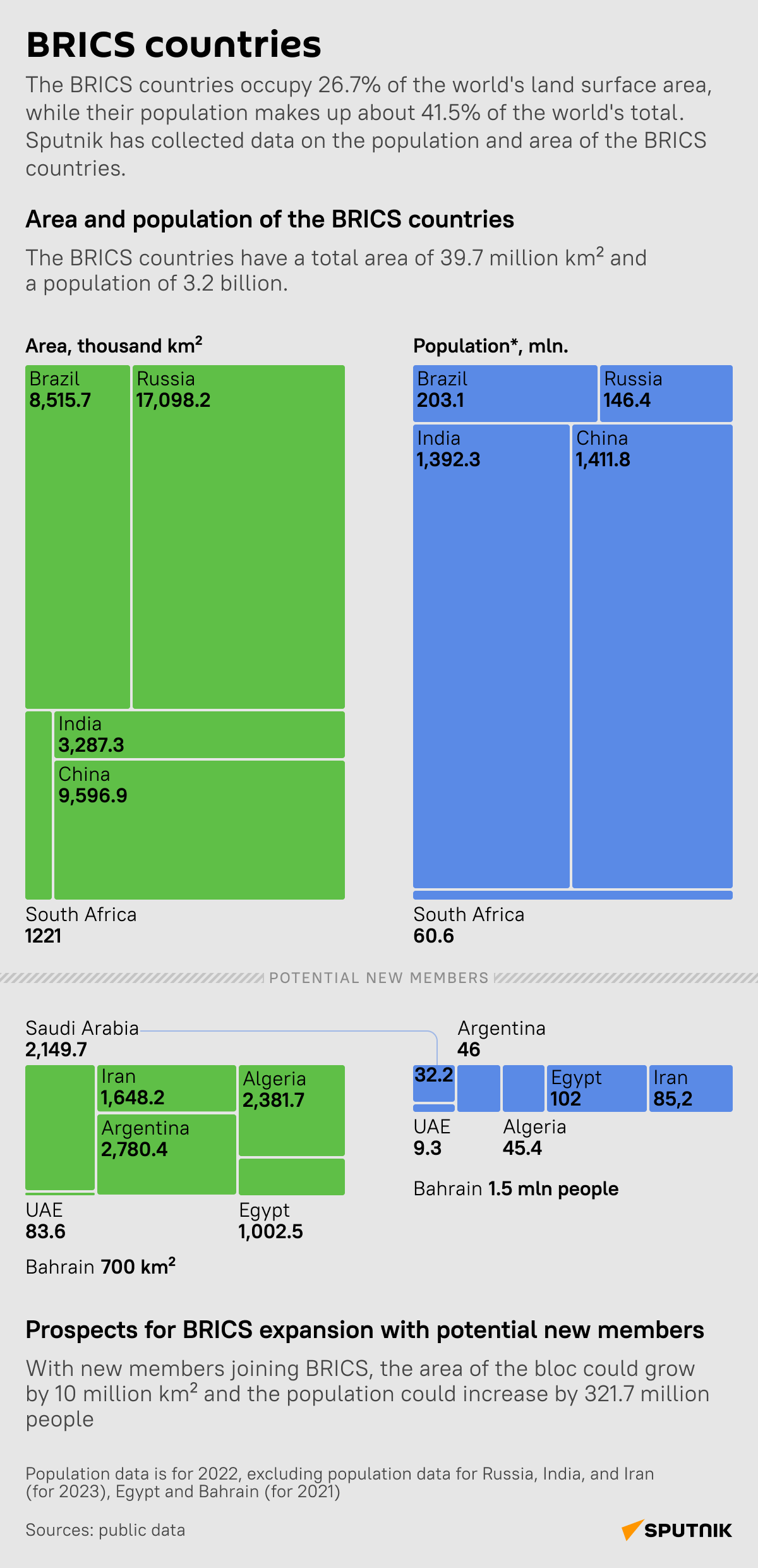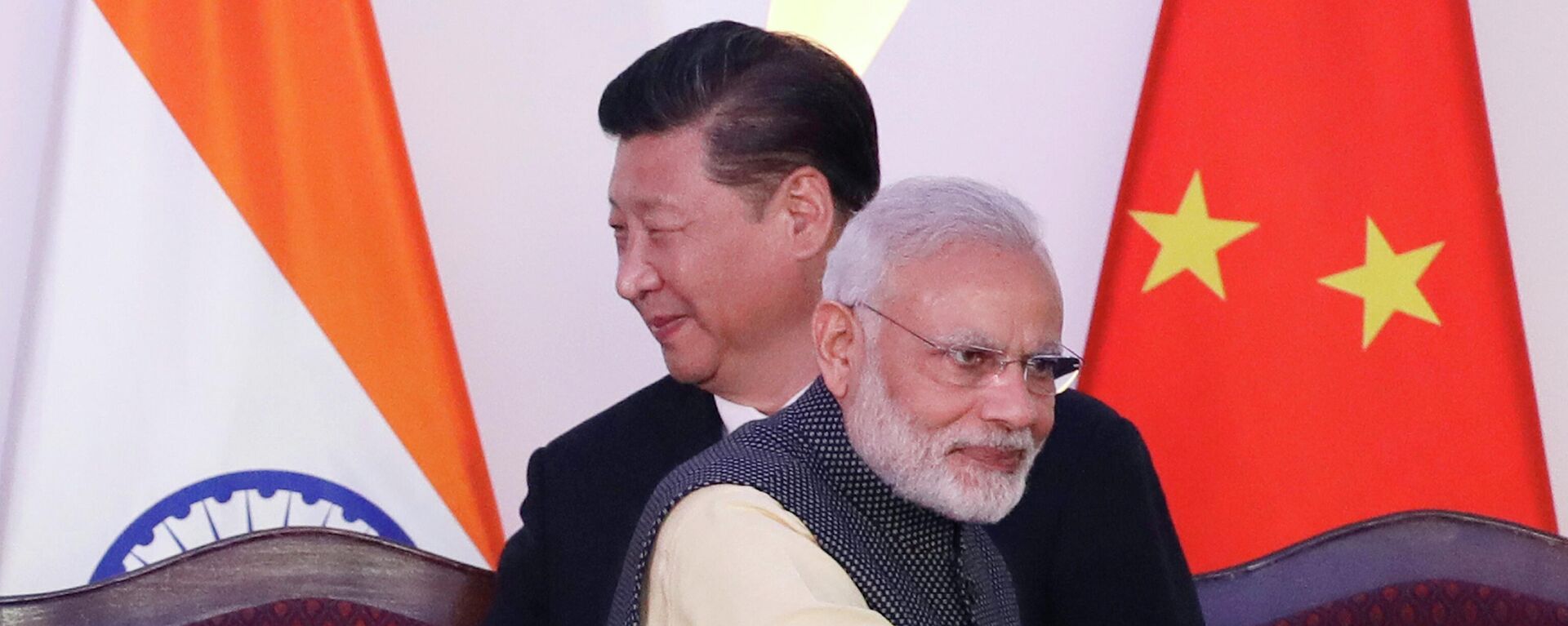https://sputniknews.in/20230819/find-out-why-expanding-brics-is-bringing-about-multipolar-world-order-3662759.html
Find Out Why Expanding BRICS Is Bringing About Multipolar World Order
Find Out Why Expanding BRICS Is Bringing About Multipolar World Order
Sputnik India
With new members joining and strategic alliances forming, BRICS is well-positioned to lead the way towards a more inclusive and multipolar world order.
2023-08-19T12:13+0530
2023-08-19T12:13+0530
2023-08-19T12:13+0530
world news
brics
2023 brics summit
global economy
global south
india
china
russia
south africa
multipolar world
https://cdn1.img.sputniknews.in/img/07e7/08/12/3686558_0:0:1280:720_1920x0_80_0_0_31499f216c5049134c6be5484ebf325f.png
The BRICS grouping has been swamped with membership proposals in the past dew months: from Middle East to Latin America, everyone wants to hop in and enjoy the benefits of being a member of, perhaps, the most promising international grouping today.The upcoming 15th summit of the BRICS grouping, to be held in Johannesburg, South Africa, is set to be a significant event, given into account that as many as 23 nations have formally applied to join BRICS. As the 15th BRICS summit in South Africa is just days away, Sputnik India explored what will the most promising multipolar bloc look like with the accession of new members.The Rise of BRICSBRICS, an acronym for Brazil, Russia, India, China, and South Africa, represents a group of leading rising economies. These nations collectively showcase the potential to influence the global economy and challenge the traditional Western dominance. Over the years, BRICS has emerged as a powerful force, outperforming the G7 and demonstrating the possibility of a power shift from the Global North to the Global South.BRICS Expansion: Prospects & ImplicationsThe topic of BRICS expansion is at the forefront of discussions within the group. Over 40 countries have expressed their interest in joining BRICS, with 23 of them formally applying for membership. The increasing interest from nations around the world highlights the growing international recognition of BRICS' influence and potential.Among the countries that have officially applied for BRICS membership are Argentina, Turkey, Saudi Arabia, the United Arab Emirates, Egypt, Senegal, Algeria, Ethiopia, Iran, and Indonesia. These countries see BRICS as a platform for enhancing their international image and gaining access to a powerful network of emerging economies. The expansion of BRICS has far-reaching implications for global world order:BRICS' rise signifies a shift in the global balance of power: the emerging markets are challenging the traditional Western dominance and offering an alternative model for development and cooperation. BRICS' increasing influence in international affairs is reshaping the dynamics of global governance and fostering a multipolar world order.One of the key aspects of BRICS' international image is its commitment to South-South cooperation. By leveraging their collective strengths, BRICS nations aim to promote inclusive multilateralism, sustainable development, and mutually beneficial partnerships with other developing countries. This approach fosters solidarity among emerging economies and provides a platform for sharing experiences, best practices, and resources.BRICS' international image is further enhanced through strategic alliances with other regional organizations and international institutions. The group actively collaborates with African countries, inviting leaders from Africa and the global South to the BRICS-Africa Outreach and BRICS Plus Dialogues. Additionally, representatives from international organizations, such as the United Nations and the African Union, are invited to participate, fostering cooperation on a broader scale.
https://sputniknews.in/20230816/india-and-china-dont-want-ladakh-issue-to-spillover-to-brics-g-20-expert-3637191.html
global south
india
china
russia
south africa
Sputnik India
feedback.hindi@sputniknews.com
+74956456601
MIA „Rossiya Segodnya“
2023
Sputnik India
feedback.hindi@sputniknews.com
+74956456601
MIA „Rossiya Segodnya“
News
en_IN
Sputnik India
feedback.hindi@sputniknews.com
+74956456601
MIA „Rossiya Segodnya“
Sputnik India
feedback.hindi@sputniknews.com
+74956456601
MIA „Rossiya Segodnya“
brics summit 2023, brics expansion, brics summit south africa, brics 2023 host country, brics 2023, brics summit 2023 held in which country, 2023 brics summit held in which country, 15th brics summit 2023, brics meeting 2023, 2023 brics summit, which countries applied to join brics, brics expanding, how many members brics,
brics summit 2023, brics expansion, brics summit south africa, brics 2023 host country, brics 2023, brics summit 2023 held in which country, 2023 brics summit held in which country, 15th brics summit 2023, brics meeting 2023, 2023 brics summit, which countries applied to join brics, brics expanding, how many members brics,
Find Out Why Expanding BRICS Is Bringing About Multipolar World Order
With new members joining and strategic alliances forming, BRICS is well-positioned to lead the way towards a more inclusive and multipolar world order.
The BRICS grouping has been swamped with membership proposals in the past dew months: from Middle East to Latin America, everyone wants to hop in and enjoy the benefits of being a member of, perhaps, the most promising international grouping today.
The upcoming
15th summit of the BRICS grouping, to be held in Johannesburg, South Africa, is set to be a significant event, given into account that as many as 23 nations have formally
applied to join BRICS.
As the 15th BRICS summit in South Africa is just days away, Sputnik India explored what will the most promising multipolar bloc look like with the accession of new members.
BRICS, an acronym for Brazil, Russia, India, China, and South Africa, represents a group of leading rising economies. These nations collectively showcase the potential to influence the global economy and challenge the traditional Western dominance.
Over the years, BRICS has emerged as a powerful force,
outperforming the G7 and demonstrating the possibility of a power shift from the Global North to the
Global South.
BRICS Expansion: Prospects & Implications
The topic of BRICS expansion is at the forefront of discussions within the group.
Over 40 countries have expressed their interest in joining BRICS, with 23 of them formally applying for membership. The increasing interest from nations around the world highlights the growing international recognition of BRICS' influence and potential.
Among the countries that have officially applied for BRICS membership are Argentina, Turkey, Saudi Arabia, the United Arab Emirates, Egypt, Senegal, Algeria, Ethiopia, Iran, and Indonesia. These countries see BRICS as a platform for enhancing their international image and gaining access to a powerful network of emerging economies.
The expansion of BRICS has far-reaching implications for global world order:
Challenging Traditional Western Dominance BRICS' rise signifies a shift in the global balance of power: the emerging markets are challenging the traditional Western dominance and offering an alternative model for development and cooperation.
BRICS' increasing influence in international affairs is reshaping the dynamics of global governance and
fostering a multipolar world order.
Enhancing South-South Cooperation One of the key aspects of BRICS' international image is its commitment to South-South cooperation.
By leveraging their collective strengths, BRICS nations aim to promote
inclusive multilateralism, sustainable development, and mutually beneficial partnerships with other developing countries.
This approach fosters solidarity among emerging economies and provides a platform for sharing experiences, best practices, and resources.
Building Strategic Alliances BRICS' international image is further enhanced through
strategic alliances with other regional organizations and international institutions.
The group actively collaborates with African countries, inviting leaders from Africa and the global South to the BRICS-Africa Outreach and BRICS Plus Dialogues.
Additionally, representatives from international organizations, such as the United Nations and the African Union, are invited to participate, fostering cooperation on a broader scale.




